Facilities Administration
While Corrections may seem to involve primarily physical duties, it is vital to have solid grasp on administrative and legal guidelines. Having a better understanding of how facilities stay organized and legally operating allow Corrections Officers to effectively flow through their day without interruption. Courses relevant to this topic include Jail Release Procedures, Inmate Record Keeping, Jail Risk Management, and Narrative Skills for Report Writing.

| Course Name | Course Description | Length |
|---|---|---|
| Basic Jail Security Principles | This course will shed light on the necessities for a safe and productive shift. It goes without saying that we all want to go home at the end of the day and the lessons contained in this course can help you walk out the door in one piece physically and mentally. | 1h |
| Checklist for Report Writing | FLETC Instructor John Bostain outlines the necessity to have a checklist prepared ahead of time for writing use-of-force reports, along with key considerations to put into them. | 10m |
| Disciplinary Procedures in a Corrections Setting | This one hour course is designed to highlight all of the different facets of disciplinary procedures in a corrections setting. | 1h |
| Fire Prevention and Response Plan for Jails | This course will help you understand the importance and what action you as a correctional officer can take to safeguard your fellow officers and the inmates. | 1h |
| Inmate Record Keeping | The one-hour Inmate Record Keeping course is vital to Officers in a correctional facility. Keeping accurate logs and records of inmates will ensure an efficient and safe environment for inmates, officers, and the public. | 1h |
| Investigating In-Custody Deaths – NEW! | In-custody deaths in correctional environments demand serious attention and scrutiny. When such tragic events occur, it is imperative for correctional staff to approach the investigation with professionalism, empathy, and a commitment to uncovering the truth. Correctional management is pivotal in helping maintain transparency, integrity, and accountability within the system. | 1h |
| Jail Risk Management | This course will deal with the risks associated with jails, which fall into three main categories: facility, jail operations and management/administration. | 1h |
| Kevin Dillon’s Report Writing Tips | Veteran Kevin Dillon draws upon his 25 years of experience as an officer and SWAT team commander to offer tips on successful report writing. | 10m |
| Narrative Skills for Report Writing | In this segment, Dave Smith interviews Shane Gericke about his experience as a crime novelist. Gericke talks about his extensive research of crime scenes, law enforcement tactics, and the environment. Smith outlines how the use of clear and descriptive report writing will greatly assist in prosecuting the case. | 10m |
| Nutritional Standards for Correctional Facilities | It’s not your mom’s cooking, that’s for sure, but you can be certain that inmates’ nutritional intake is regulated and carefully planned to ensure that they are reaching certain dietary standards set forth. This one-hour course will provide an overview of nutritional standards that must be met, exceptions, and precautions that are taken to ensure that every inmate is receiving a safe meal. | 1h |
| Report Writing 1 | This is the first Training Block for the course on Report Writing.This course covers:Checklist for Report Writing, Kevin Dillon’s Report Writing Tips, Report Writing Legal Issues: Cut and Paste, Report Writing: Authoring, Report Writing: Cell phones, Report Writing: Distractions, Report Writing: Keys to Time Management | 1h |
| Report Writing 2 | This is the second Training Block for the course on Report Writing.This course covers:Narrative Skills for Report Writing, Report Writing Legal Issues: Brady vs. Maryland, Report Writing: Chronological Order, Report Writing: Elements of the Crime, Report Writing: English Skills, Report Writing: Note Taking, Report Writing: Reviewing, Report Writing: Technology, Report Writing: Understanding Time Management. | 1h |
| Report Writing: Authoring | In this segment, William Fogarty suggests the author remember that the most effective authors allow you to ,live the incident and feel as though you are there as it is occurring. | 5m |
| Report Writing: Cell phones | Report Writing consists of many areas that are important and combine to ensure a successful prosecution. This includes writing a factually accurate report and understanding that cellular telephones can be a great asset but also a large distraction from writing a report. In this segment, William Fogarty suggests an author of a report understand that cellular telephones can be a distraction from writing a report and there may be no expectation of privacy. | 5m |
| Report Writing: Chronological Order | In this segment, William Fogarty suggests taking the time to review the incident and documenting all of the incidents chronologically from what happened just before, during, and finally after the incident occurs. | 5m |
| Report Writing: Cut and Paste | Report Writing consists of many areas that are important to ensure a successful prosecution. These include writing a factually accurate report to ensure there are no legal issues. This section identifies the need to understand that while cut and paste does save time, it can still result in mistakes. In this segment, William Fogarty explains the need to review reports after using ,cut and paste to ensure the report is factually correct. | 5m |
| Report Writing: Distractions | Report Writing consists of many areas that are important and combine to ensure a successful prosecution. This includes writing a factually accurate report and understanding that time management includes the need to distance yourself from distractions during the course of a day while trying to complete a report. In this segment, William Fogarty suggests an author of a report understand that distractions occur all the time and there is a need to ensure a buffer of time to allow for a complete and accurate report be completed. | 5m |
| Report Writing: Elements of the Crime | In this segment, William Fogarty suggests including all the elements of all of the crimes that occur, and to include the why an incident occurs. | 5m |
| Report Writing: English Skills | In this segment, William Fogarty explains the need to understand the basics of the English language, including the proper use of grammar and punctuation. | 5m |
| Report Writing: Evidence Collection | This segment identifies the need to ensure the evidence listed in the report matches the evidence tag placed on the item. | 5m |
| Report Writing: Keys to Time Management | Report Writing consists of many areas that are important and combine to ensure a successful prosecution. This includes a writing factually accurate report and the need to remember time management techniques in order to complete a report. | 5m |
| Report Writing: Legal Issues (Brady vs. Maryland) | Report Writing consists of many areas that are important and combine to ensure a successful prosecution. This includes writing a factually accurate report and the understanding of ,Brady issues when writing a report. In this segment, William Fogarty suggests an author of a report understand the need to be honest when writing a report including all information, and not just the part that assists with the prosecution of the case. In this segment, William Fogarty suggests an author of a report understand the need to be honest when writing a report including all information, and not just the part that assists with the prosecution of the case. | 5m |
| Report Writing: Metadata | In this segment, William Fogarty explains the need to define and understand metadata to ensure that crime reports appear accurate and factually correct as written by the officer/deputy. | 5m |
| Report Writing: Note Taking | In this segment, William Fogarty suggests the author of a report needs to ensure that he/she understands the need to take good notes which do not use abbreviations unless he/she will be the only reader. In addition, it is important that the report author understands the definitions of all words that they use while writing the report, including those made during witness statements. | 5m |
| Report Writing: Reviewing | Report Writing consists of many areas that are important and combine to ensure a successful prosecution. This includes taking the time to review your report prior to submission, and having others review it before it is put into the record. | 5m |
| Report Writing: Spell Check | Report Writing consists of many areas that are important and combine to ensure a successful prosecution. This includes writing a factually accurate report to ensure there are no legal issues. | 5m |
| Report Writing: Technology | Report Writing consists of many areas that are important and combine to ensure a successful prosecution. This includes writing a factually accurate report and the need to remember time management techniques in order to complete a report in a timely fashion. In this segment, William Fogarty suggests the writer understand the need to complete a report using good time management techniques. | 5m |
| Report Writing: Understanding Time Management | Report Writing consists of many areas that are important and combine to ensure a successful prosecution. This includes a writing factually accurate report and the need to remember time management techniques in order to complete a report in a timely fashion. In this segment, William Fogarty suggests the writer understand the need to complete a report using good time management techniques. | 5m |
| Written Communication and Report Writing | This one-hour course will enlighten you in the reasons for writing reports, what you should complete detailed reports about, and tips for writing outstanding communication and reports. | 1h |
| Safety First: A Refresher in Facility Security | This course will provide insight and understanding about the importance of reading the climate of the inmate population, enhancing observation skills, communicating with staff and inmates and maintaining good thinking skills to keeps tensions down in the facility while at the same time maintaining a high level of safety. The CO will learn how to recognize the possibility of inmate violence better, how to read signs of tension in the inmates and how to take proactive action to decrease, rather than escalate violence. The basis of this course is knowledge and awareness about inmate violence and how to prevent it as much as possible. | 1h |
